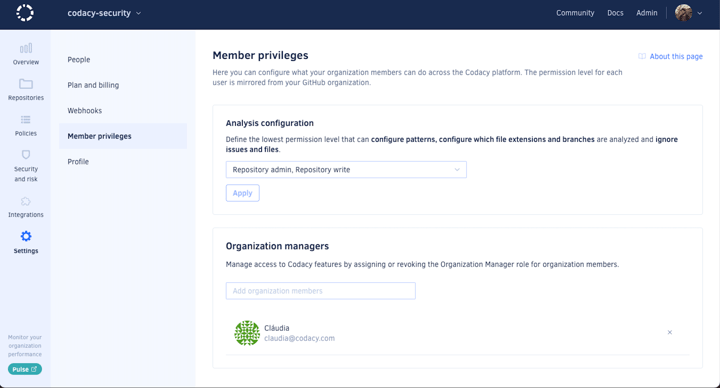New Organization Manager Role and Language Support Added

Our new organization manager role represents a huge step in our mission to tailor platform access to the needs and preferences of our customers.
This much-demanded feature allows Codacy admins to delegate several admin permissions (organization-wide gate management, coding standards, integrations, and security and risk management dashboard access) to specific users without granting them full admin permissions in your Git provider.
This new role removes a bottleneck for admins by making it easier for our customers to manage organization-wide policies and standards centrally instead of on a repo level, which is a huge efficiency win.
The biggest difference between this new role and other roles in Codacy is that it doesn’t rely on Git synchronization, meaning that the organization manager role is independent of the Git provider roles of organization members.
Previously, only users who had admin permissions in their Git provider organization were able to configure Codacy features for their team. Now, Codacy admins can assign organization manager roles to team members manually through Codacy, giving them additional permissions, regardless of Git provider roles.

Important Note: We’re retiring the Security Manager role. If anyone on your team is a Security Manager, their role will automatically be converted to Organization Manager.
Also, if you want to assign someone the Organization Manager role, they must still belong to your git provider organization. When you remove someone from your git provider organization, that person loses all access to Codacy as well.
For an in-depth explanation of how to set up and manage this new role in Codacy, check out our official documentation.
New Language Added: Rust
Codacy now supports a new programming language—Rust—across Quality, static application security testing (SAST), software composition analysis (SCA), and secret detection. We strive to make our platform as inclusive as possible and currently support 46 languages.
If there’s a language you would like us to support that we currently don’t, please let us know. You can see our full list of supported languages and tools here.
.svg)


